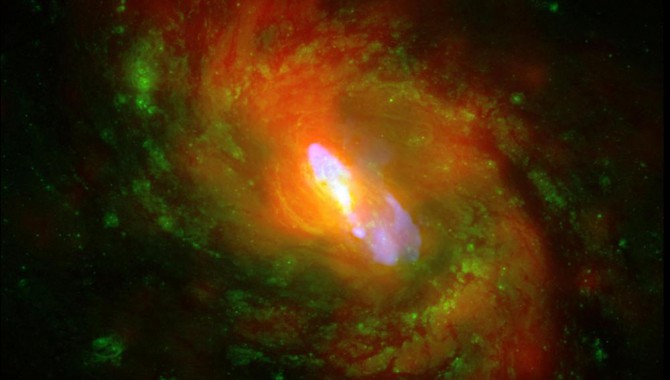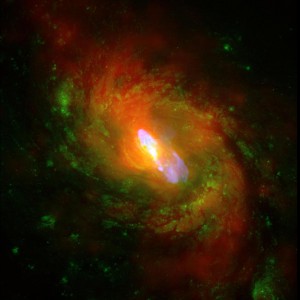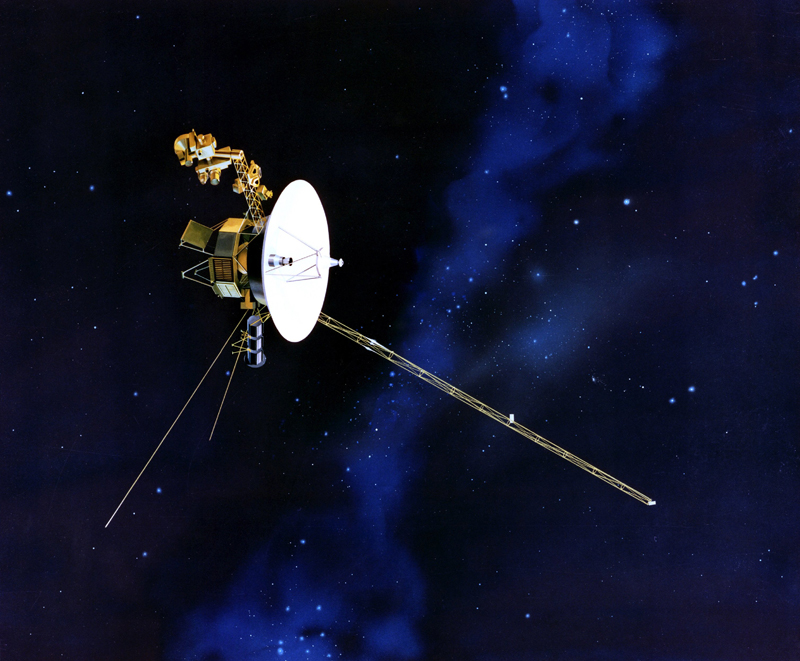
NASA in the News
New observations from NASA’s Chandra X-ray Observatory provide evidence for powerful “winds” blowing away from the vicinity of a supermassive black hole in a nearby galaxy.  This discovery indicates that average supermassive black holes may play an important
This discovery indicates that average supermassive black holes may play an important
role in the evolution of the galaxies in which they reside. It has long been suspected that material blown away from a black hole—as opposed to the material that falls into it—alters the evolution of its host galaxy. The X-ray images and spectra obtained using Chandra’s High-Energy Transmission Grating Spectrometer showed that material is being driven away from the center of galaxy NGC 1068 at about a million miles per hour. Further studies of nearby galaxies will examine the impact of other active galactic nuclei winds, leading to improvements in our understanding of the evolution of both galaxies and black holes. More information, including images and other multimedia, can be found at chandra.harvard.edu.
Learning and Development
The European Space Agency (ESA) is an international organization of eighteen member states. By coordinating the financial and intellectual resources of its members, it undertakes programs and activities far beyond the scope of any single European country. To read about ESA’s missions, view their gallery of spectacular space and Earth images, and track their satellites in real time, visit www.esa.int. Also check out their YouTube page at www.youtube.com/esa to watch astronauts answer questions and learn more about ESA’s activities in space..
Web of Knowledge
How often can you say that you’ve seen the components of a space telescope being worked on at NASA? Web cameras in Goddard Space Flight Center’s largest clean room are now providing daily, live coverage of work on components of the upcoming James Webb Space Telescope. They provide one image per minute so people can see what happens behind the scenes. Of course, the work happens during regular working hours, so there may not be action on screen all the time. To watch the “Webb cams,” visit www.jwst.nasa.gov/webcam.html.
For More on Our Stories
Additional information pertaining to articles featured in this issue can be found by visiting the following Web sites:
- Centennial Challenges</strong
- NextGen Air Transportation
- CubeSat Initiative
Feedback
We welcome your comments on what you’ve read in this issue of ASK and your suggestions for articles you would like to see in future issues. Share your thoughts with us.







